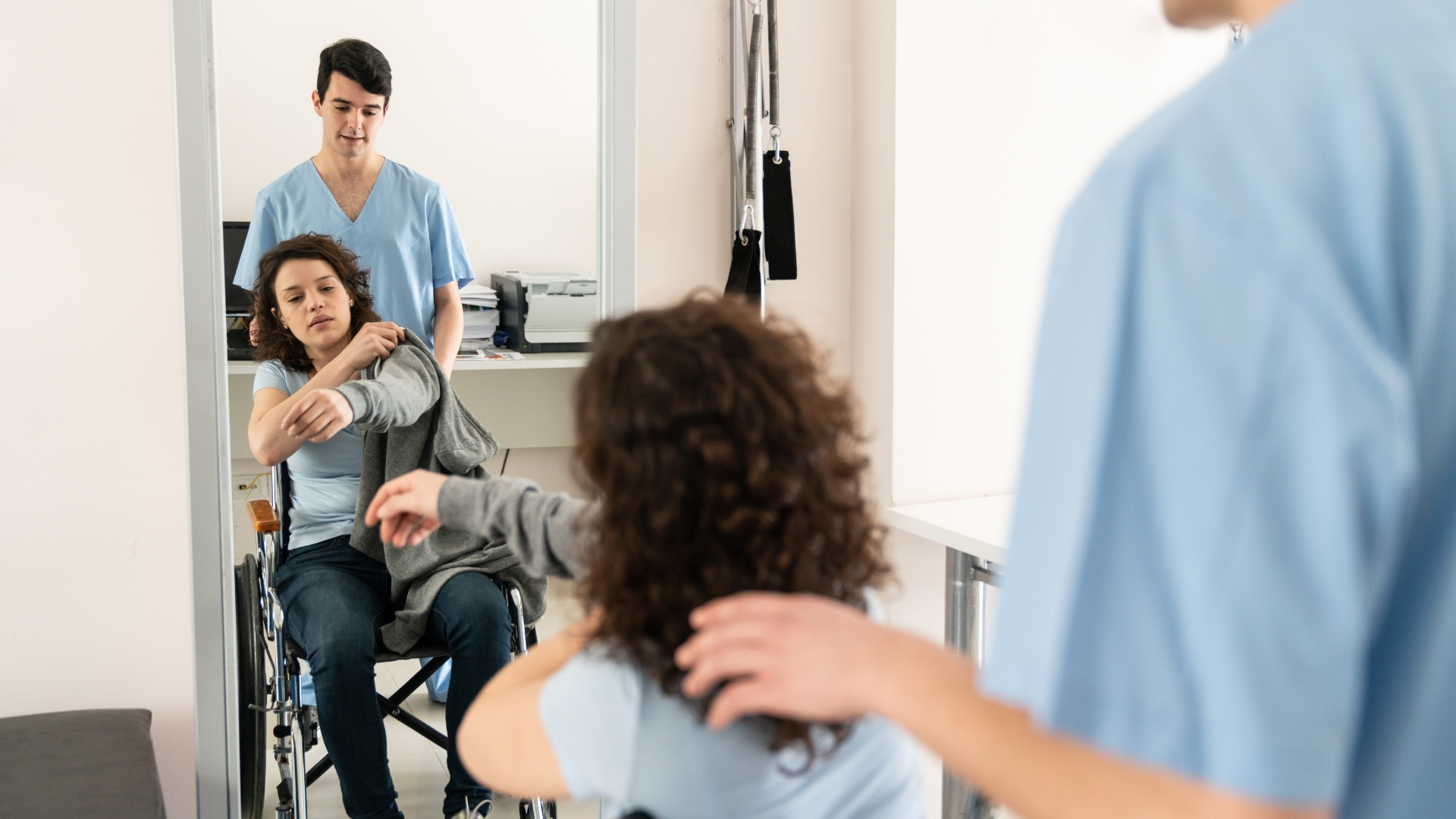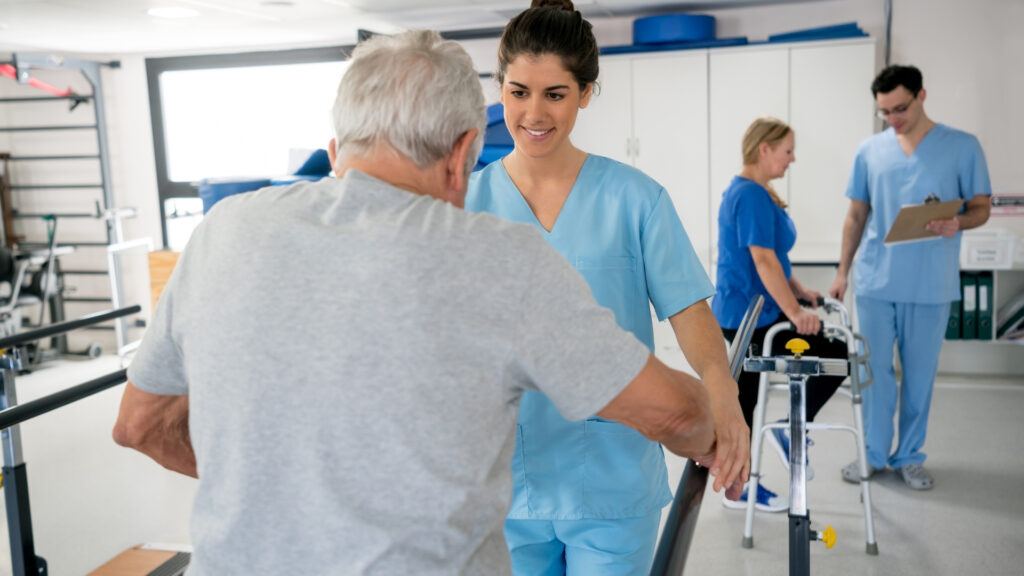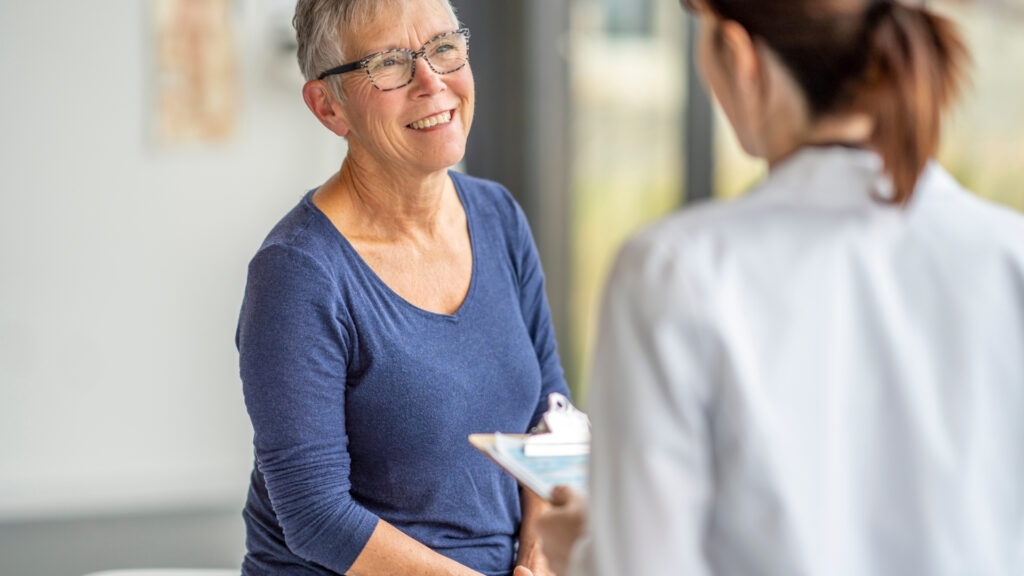Follow-up treatment: How to find the right rehabilitation clinic

Contents:
- Early planning and medical recommendations
- Specialization of the rehabilitation clinic
- Location and accessibility
- Experience and reputation of the clinic
- Equipment and therapy services
- Staff qualification and support
- Financial aspects and insurance
- Tour and personal impressions
- Continuous communication with the attending physician
- Aftercare and long-term prospects
A stroke is a life-changing event, and choosing the right rehab clinic for follow-up treatment is crucial for a successful recovery. In this article, you will learn how to find the best rehabilitation clinic after a stroke and which factors play a role.
1. Early planning and medical recommendations:
The search for the right rehabilitation clinic should begin in the acute phase after a stroke. This means that plans for the next steps in rehabilitation should already be made during the stay in the stroke unit. Doctors and healthcare professionals play a crucial role in recommending suitable facilities. Of course, the person concerned retains the freedom to choose the clinic to which he or she wishes to go, regardless of the suggestions of those treating him or her. Early planning makes it possible to secure a place in good time and check the best options.
Online portals such as Klinikkompass or the links provided by the stroke support service can help you find a suitable rehabilitation clinic:
- https://www.klinikkompass.com/kliniken-fuer-einen-schlaganfall-in-deutschland/
- https://schlaganfallbegleitung.de/verzeichnis/rehakliniken
- https://www.qualitaetskliniken.de/
- https://klinikradar.de/
2. Specialization of the rehabilitation clinic:
| Different rehab clinics have different focuses and specializations. It is important to consider which aspects of recovery are most important, be it neurological rehabilitation, physiotherapy, speech therapy or occupational therapy. The specialization should correspond to the individual needs of the patient. |  |
3. Location and accessibility:
The location of the rehabilitation clinic plays a role, both in terms of accessibility for relatives and the surrounding area. A calm environment can contribute to recovery, while being close to family and friends provides emotional support.
There is also the option of outpatient rehabilitation. Depending on the arrangement, the affected person is either picked up from home and taken to a therapy center or treated at home. Like inpatient rehabilitation in the clinic, outpatient rehabilitation after a stroke comprises a structured program aimed at improving the patient’s functional ability and independence. It includes regular therapy sessions such as physiotherapy, occupational therapy and speech therapy aimed at restoring or improving motor skills, everyday activities and language communication.
4. Experience and reputation of the clinic:
The experience and reputation of a rehabilitation clinic are decisive criteria. Search online for reviews, testimonials and patient feedback. A clinic with positive feedback and a proven track record can build trust.
5. Equipment and therapy services:
 | Check the clinic’s facilities and the variety of therapies on offer. Modern technologies and a wide range of therapy options can improve the rehabilitation process. Make sure the clinic provides the resources needed for a full recovery. |
6. Staff qualification and support:
The qualification of the medical staff is crucial. Check the qualifications of doctors, therapists and nursing staff. Qualified and dedicated care is the key to successful rehabilitation.
7. Financial aspects and insurance:
Clarify the financial aspects in advance, especially in connection with health insurance. Make sure that the clinic you have chosen is covered by your insurance and clarify any additional costs.
8. Tour and personal impressions:
| If possible, visit the rehab clinics you are considering in person. A tour allows you to see the facilities, meet the staff and gain a personal impression. This can play an important role in the decision-making process. |  |
9. Continuous communication with the treating persons:
Maintain open communication with the practitioners during the selection process. Doctors can offer valuable insights and recommendations to help you make the right choice.
10. Aftercare and long-term perspectives:
Consider aftercare and long-term prospects when choosing a rehabilitation clinic. A structured aftercare program can facilitate the transition to everyday life and ensure long-term success.
After completing a rehabilitation program, it is important that patients continue to receive appropriate support and care to maintain their progress and avoid relapse. What this aftercare looks like is very individual and should be discussed by those affected together with those treating them.
Overall, choosing the right rehabilitation clinic after a stroke is a crucial step on the road to recovery. Thorough research, consideration of individual needs and open communication with the medical team help to make the best possible decision and have a positive influence on the rehabilitation process.